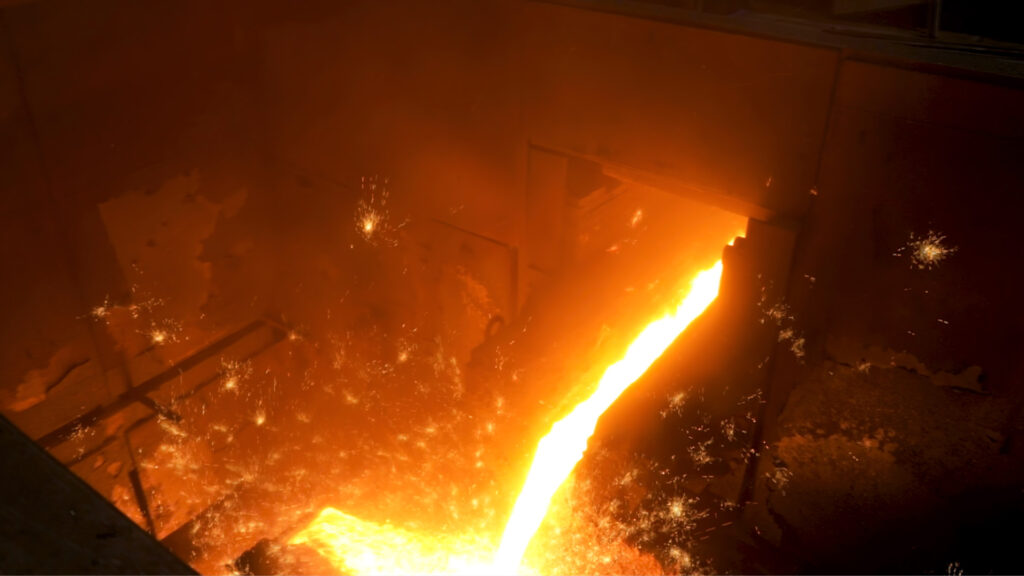Have you ever wondered how minerals are refined? From the early stages of exploration and extraction to the complex processes of purification – refining minerals is a complex but necessary process. This guide will provide an easy-to-follow step-by-step overview of the mineral refining process, from the initial stages of exploration and extraction to the final stages of purification and refinement. By understanding the different stages of refinement, you can better appreciate the importance of mineral refining and its role in our everyday lives.
What is Refining Minerals Process?
Mineral refining is the process of separating and purifying raw minerals. The refining process typically begins with the mining or extraction of ores and minerals and ends with a final product of pure metals and minerals. Mineral refining can also involve other complex processes such as smelting, stripping, and roasting. The refining process includes many steps: exploration, extraction, crushing and grinding, separation and concentration, purification, and refinement. Some of these steps may take place at the mine site, while others happen at mineral processing plants located away from the mine site.
Overview of the Refining Mineral Process
This section highlights the different stages of the refining process, from the initial stages of exploration and extraction to the final stages of purification and refinement. Exploration and Extraction – Exploration and extraction are the first steps in the refining process. This involves the search for minerals and ores in the field. Once found, the minerals must be extracted from the ground. Next, the minerals are transported to a mineral processing plant. Crushing and Grinding – After the minerals have arrived at the processing plant, they are first crushed to a smaller size. The crushed materials are then ground into finer particles to facilitate further processing. Separation and Concentration – The separation and concentration process takes place after grinding. The next step is to separate the desired minerals from the crushed ore using various techniques such as flotation, gravity concentration, and electrostatic separation. Purification and Refinement – The last stage of the refining process is purification and refinement. After the desired minerals have been separated from the ore, they are then purified. Purification is a complex process that removes impurities from minerals. Purification is followed by the final stage of refinement, during which the purified minerals are transformed into a pure form.
Benefits of Refining Minerals
There are many benefits associated with the refining of minerals, including – Improved extraction efficiency – Mineral refining allows for greater efficiency in the extraction of minerals, which can help lower the cost of production. – Improved extraction rates – Mineral refining can increase the extraction rates of minerals, resulting in a higher overall yield. – Better quality product – By removing impurities, minerals are transformed into a higher-quality product. – Minimized environmental impact – By minimizing the use of impurities, the refining process minimizes the environmental impact of the mineral processing. – Increased product life span – The removal of impurities extends the product life span, reducing the need for replacement. – Reduction of health hazards – By eliminating impurities from the minerals, the refining process can help reduce health hazards. – Improved sustainability – The removal of impurities during the refining process can help make the minerals more sustainable.
Refining Gold In Sudanese Mining Companies
RIDA Group is one of the leading mining companies in Sudan, and it was founded in 1993. It’s also the first company to introduce artisanal gold tailings processing in Sudan. RIDA’s CIL plant performs five phases of gold processing and refining, which are: preparing the ore, grinding, leaching and adsorption, stripping, and smelting, which is the last phase in gold processing. Before the smelting phase, the gold paste is put in a reactor and mixed with nitric acid for two to three hours to eliminate impurities such as iron, silver, and copper, which come with the ore from different sources. This procedure is performed to ensure gold purity.
Conclusion
Mineral refining is a complex but necessary process. The refining process typically begins with the mining or extraction of ores and minerals and ends with a final product of pure metals and minerals. Mineral refining can also involve other complex processes such as smelting, calcination, and roasting. The refinement process includes many steps: exploration, extraction, crushing and grinding, separation and concentration, purification, and refinement. Some of these steps may take place at the mine site, while others happen at mineral processing plants located away from the mine site. By understanding the different stages of refining, you can better appreciate the importance of mineral refining and its role in our everyday lives.


